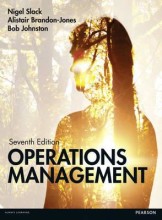Theories of culture: a fundamental question - Compositional approach: culture as a collection of things shared by a group of people
5 important questions on Theories of culture: a fundamental question - Compositional approach: culture as a collection of things shared by a group of people
What is the compositional approach?
What is the essence the concept of communities of practice?
What important implications do the different groups of people have for conceptualising culture?
- cultural groups exist at many different levels, in different sizes and for different purposes
- a cultural group can co-exist with another group (co-culture), be embedded in another culture (sub-culture) or overlap with another group
- a person can belong to several different cultures at the same time
- Higher grades + faster learning
- Never study anything twice
- 100% sure, 100% understanding
What is the dialectical approach?
What are the six dialects?
- cultural-individual: some behaviours are idiosyncratic and others reflect cultural trends
- personal-contextual: some aspects of communication remain relatively constant over a range of contexts, while others are context-dependent
- differences-similarities: group differences and similarity co-exist with each other
- static-dynamic: some aspects of culture remain relatively constant while others are subject to constant change
- present-future/history-past: the past is seen through the lens of the present and what happens currently cannot be fully understood without knowledge of what is in the past
- privilege-disadvantage: privileges can be disadvantages at the same time
The question on the page originate from the summary of the following study material:
- A unique study and practice tool
- Never study anything twice again
- Get the grades you hope for
- 100% sure, 100% understanding

Topics that are related to Theories of culture: a fundamental question - Compositional approach: culture as a collection of things shared by a group of people
-
Theories of culture: a fundamental question
-
Theories of culture: a fundamental question - Compositional approach: culture as a collection of things shared by a group of people - What counts as things and how they are related to each other
-
Theories of culture: a fundamental question - Compositional approach: culture as a collection of things shared by a group of people - Critiques of the compositional approach































